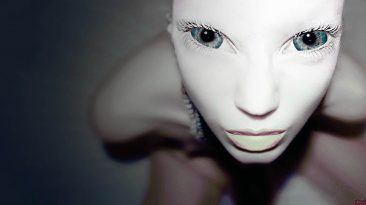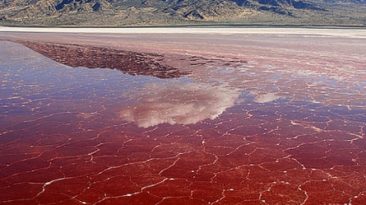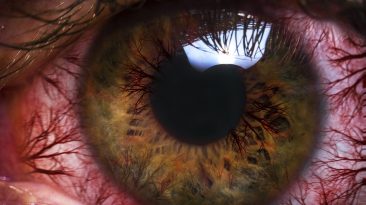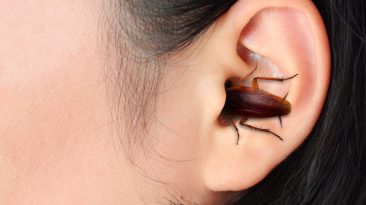Our hair is a form of personal expression. Some of us feel empowered through our hair. We spend hours at salons and barbers, but there’s more to a haircut than meets the eye. So, why do we cut our hair?
What if we all stopped cutting our hair? What would this do to the hair industry?
Let’s start at the root of this. You have about 5 million hair follicles all over your body. But what is hair? Our visible hair is the hair shaft sticking out from the skin, with the root sunk in a follicle under the surface of the skin. Except for a small number of growing cells at the root base, human hair is dead tissue composed of keratin and other proteins.
Cells rapidly divide at the base of the follicle. They push upward, harden, undergo pigmentation, and then you have hair. This happens over and over again as your hair continues to grow. So why do we cut our hair?
We mentioned cutting our hair can be about self-expression, but some people will cut their hair if they suffer trauma, like the loss of a loved one, a relationship, or even failing health. According to psychologists, making changes to your appearance provides a soothing feeling because the results are obvious and immediate. It can mark a beginning of significant life changes.
In the 1920s, when women started chopping their hair short, the societal reactions were mixed. Before this, long hair was considered feminine. Families were embarrassed by their daughters who decided to get the stylish ‘bob’ haircut, and some men started shunning these ‘boyish’ women.
But what if we all stopped cutting our hair? Would this new world have social cliques like growers and non-growers?
Would we make comparisons to other people based on how long their hair is? Would having beautiful, long flowing hair be associated with fertility and good health? The popularity of long hair contests would explode. What about strong hair competitions? And we will all be tuning in to the International Hair Freezing Competition.
If spirituality is important to you, you could convert to Sikhism and practice Kesh. This is allowing one’s hair to grow naturally as a symbol of respect for the perfection of God’s creation.
What would it mean for people who are losing their hair? Those not able to grow lengthy hair would likely become more self-conscious and feel inadequate. Hair loss might be a sign of mortality, and that would be very distressing. And what about people who are already bald and shave their heads? In this crazy new world of hair growers, this isn’t an option anymore, so you’re stuck with whatever patches of hair you have. Or don’t have.
What would this do to the hair industry? Would the haircutting industry plummet, or would it just reinvent itself? What would be the economic impact? Salons would now focus on hairstyling, coloring, and other hair-related services. The upkeep would be phenomenal. Hair accessories would become even more popular because people will look for creative ways to express themselves.
Gels, sculpting creams, and other products would help you deal with this ever growing mound of hair. And there may be hope for our balding friends after all. Wigs. The wig industry could step up and help them out offering artificial hair solutions. Now everyone’s included! Or, would ‘wig wearers’ be considered imposters?
However, those with super-curly hair could run into some dangerous situations, getting their hair caught in anything and everything.
Let’s do some quick math. Hair grows an average of 1 cm (one-half inch) each month. Multiply that by 12 months, and then by another six years. That’s almost a meter (3 feet). So, over the span of six years and a meter of hair, can you imagine the unlimited range of hairstyle options? Whether you like it or not, you would have to deal with it being part of you. I suppose you could always tie it back into a ponytail. Perhaps this would be another social class? The laid-back ponytail people? Who knows.
New medical practices could grow in popularity, like hair analysis. Hair can grow on you for two to six years before falling out. During that time, your hair shaft absorbs chemicals from any drugs you take. It also contains sweat, your body’s natural oils, and any toxins around you. A single strand of hair can give a lot of information. Hair analysis uses special techniques to look at your hair under a microscope. The results can show details about your health and habits and help you pinpoint needed lifestyle changes.
We would also encounter a series of new problems. On average, people lose between 50 to 100 hairs a day, so that hair will be everywhere. Imagine what our shower drains would look like. We could start new clothing or carpet making companies with all this surplus hair.
Hair as a form of expression is very important, and there’s no denying the amount of creativity we would see with hairstyles. But do you think people could go their whole lives without cutting their hair? We are so focused on appearance, especially on social media. Would there eventually be a hair cutting revolution? Somewhere on the dark web, an underground community of people who have short hair?
Subscribe to What-If on YouTube or follow the show on Facebook Watch.
Sources
- “Hair Mineral Analysis Test: What It Can Reveal About You”. Webmd.
- “FAQ – Sikh Coalition”. 2020. Sikh Coalition.
- “Why do humans have body hair?”. Howstuffworks.
- “I’ve donated my hair to charity 4 times. Here’s what you need to know if you want to do it.”. 2020. Business Insider.
- “The Significance Of Hair In Native American Culture”. Sister Sky.
- “The Psychology Of Hair Salons & Stylists: Therapy For Free”. 2020. Psychology Today.



























